R. v. Crown Zellerbach Canada Ltd - Case Brief & Legal Analysis
VerifiedAdded on 2023/06/04
|5
|887
|215
Case Study
AI Summary
This case brief summarizes the Supreme Court of Canada's decision in R. v. Crown Zellerbach Canada Ltd, a landmark case concerning federal versus provincial jurisdiction over marine pollution. The case revolves around Crown Zellerbach's dumping of wood waste into Canadian waters and whether the federal government's Ocean Dumping Control Act was ultra vires. The procedural history includes prior decisions in provincial courts, which initially favored Crown Zellerbach. The key legal issues addressed whether regulating marine pollution falls under federal legislative jurisdiction and the scope of the term 'sea' in federal legislation. The majority decision upheld the validity of the Ocean Dumping Act, asserting the federal government's authority over water pollution under the 'peace, order, and good governance' clause. The minority dissented, arguing for provincial jurisdiction in certain areas. The case's importance lies in clarifying the division of powers concerning environmental regulation in Canada, preventing duplication of governmental functions. Desklib offers more resources for students.
1 out of 5
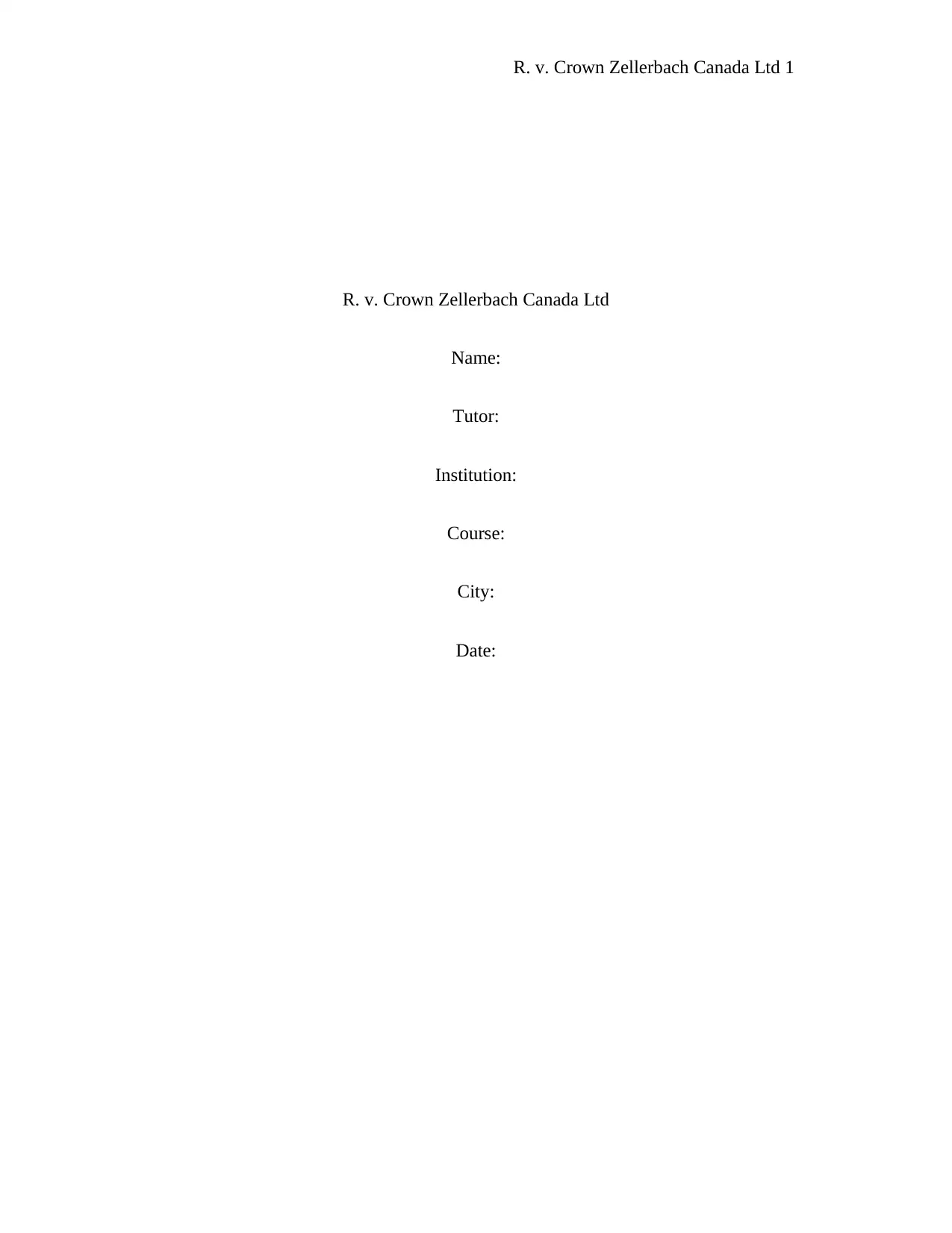
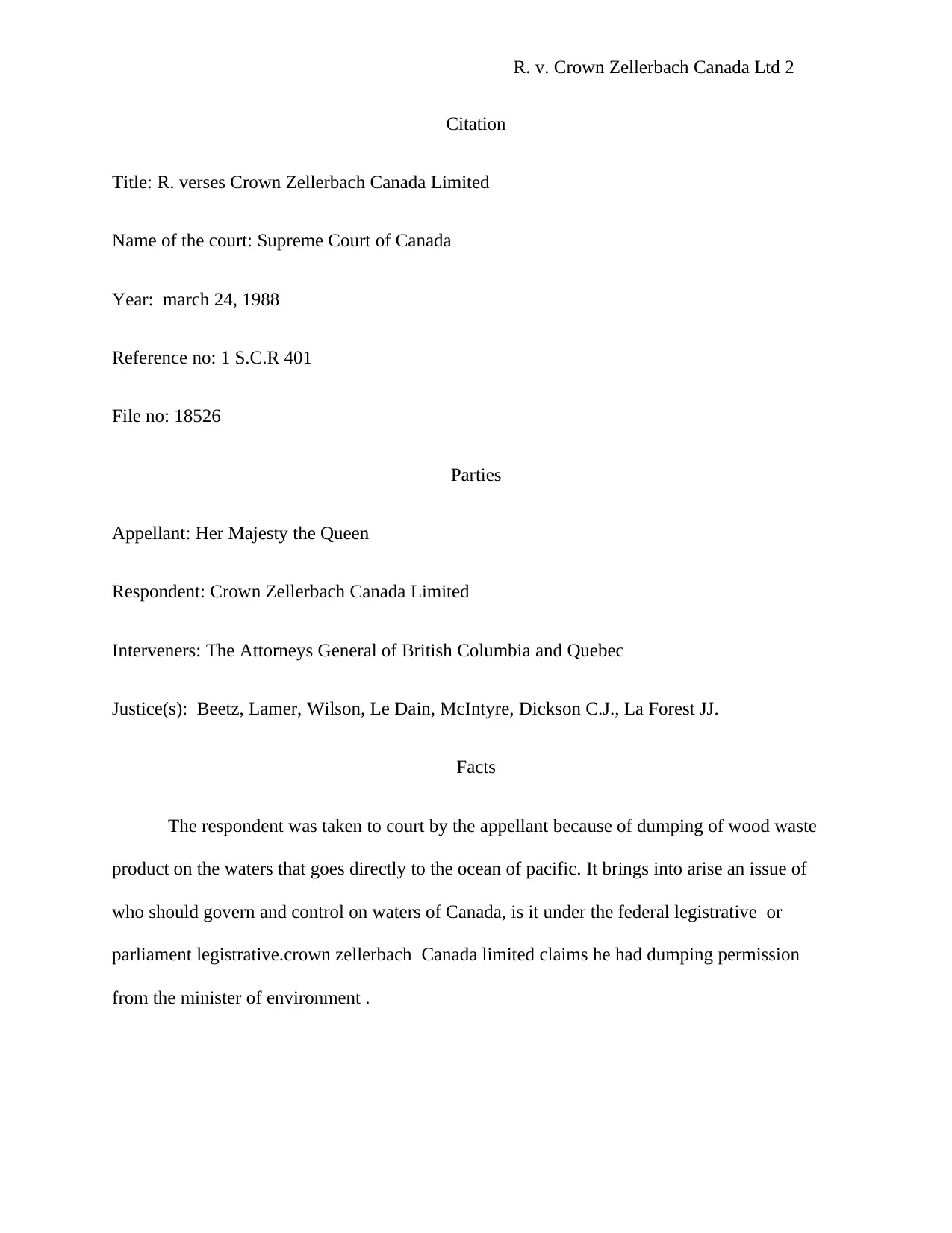
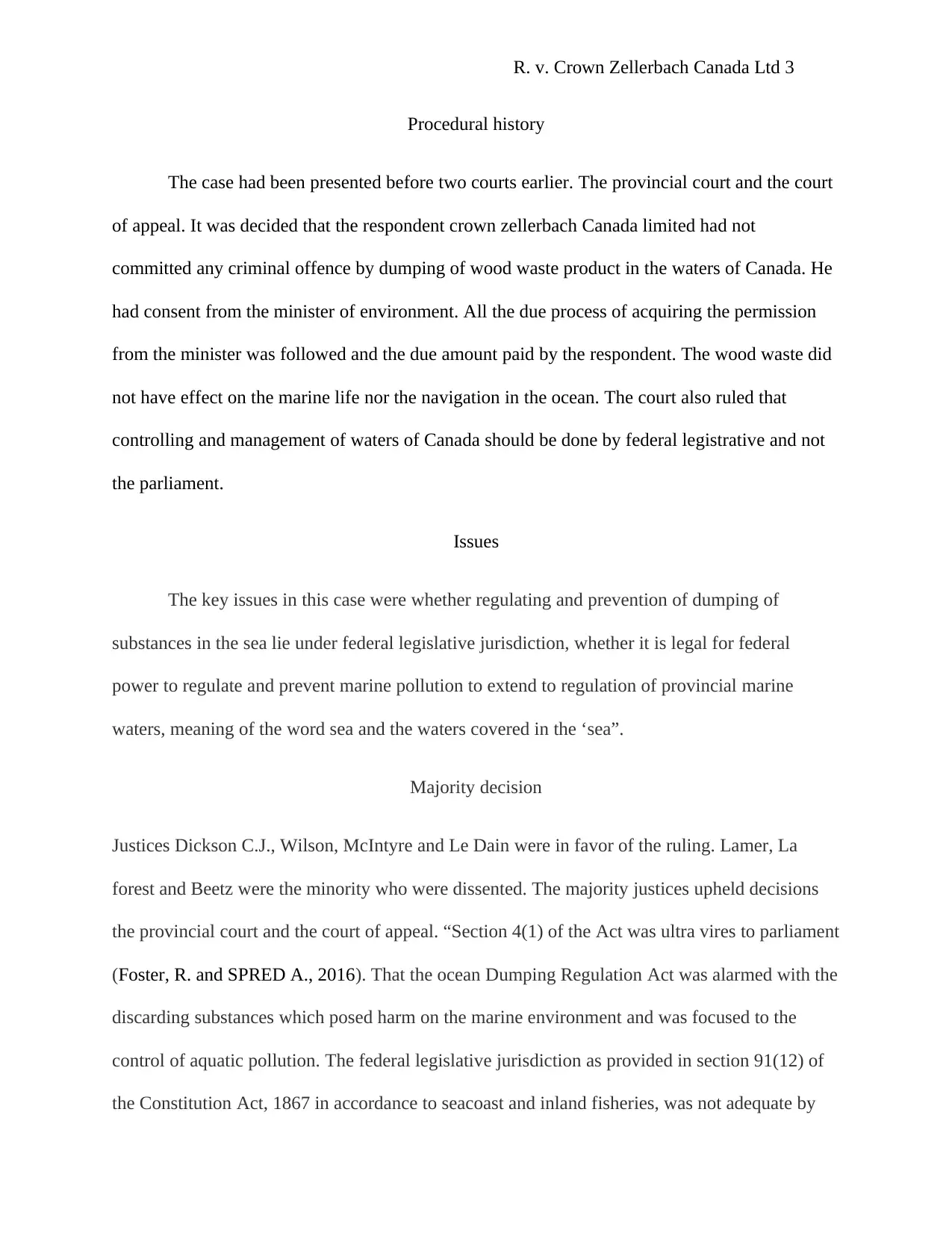

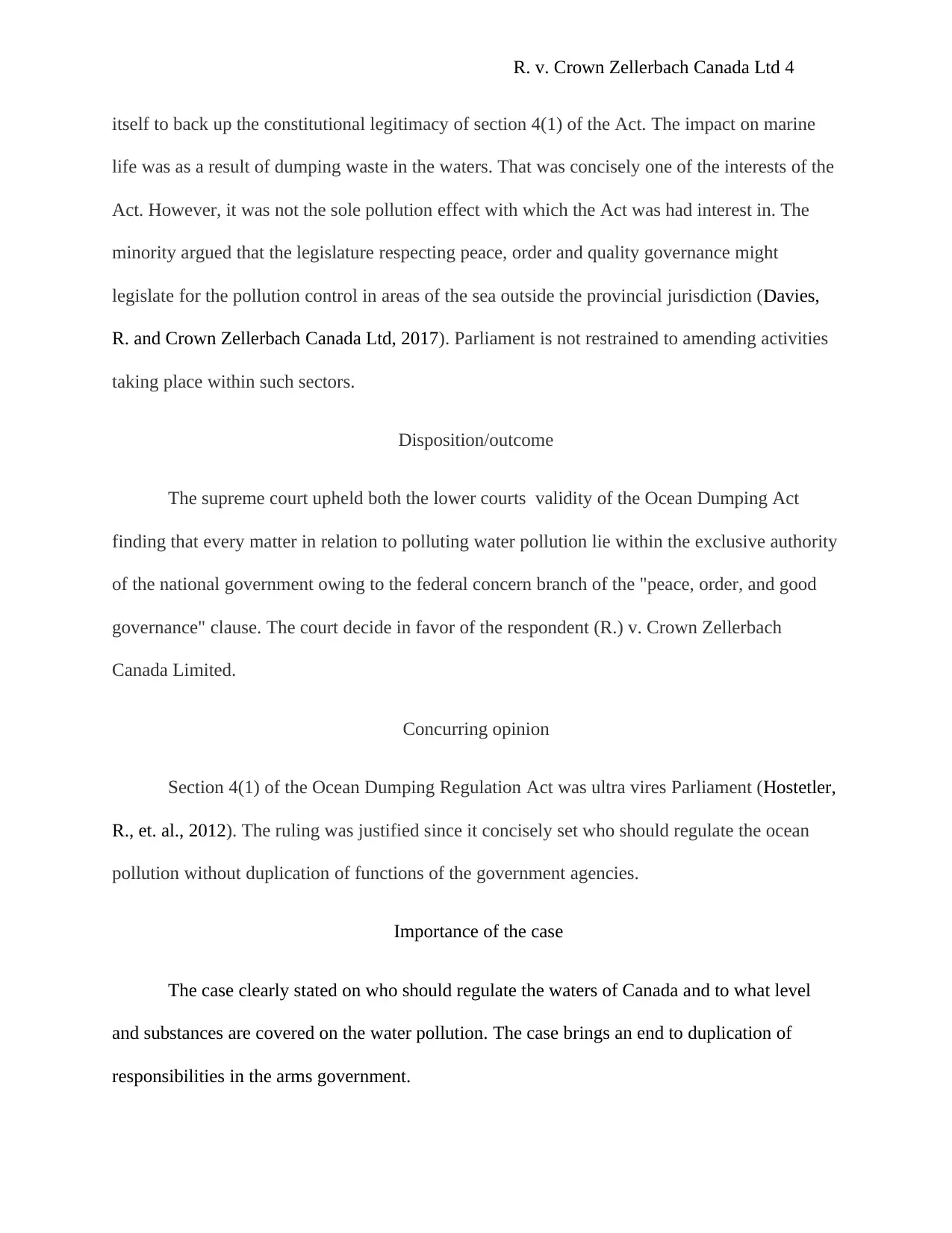
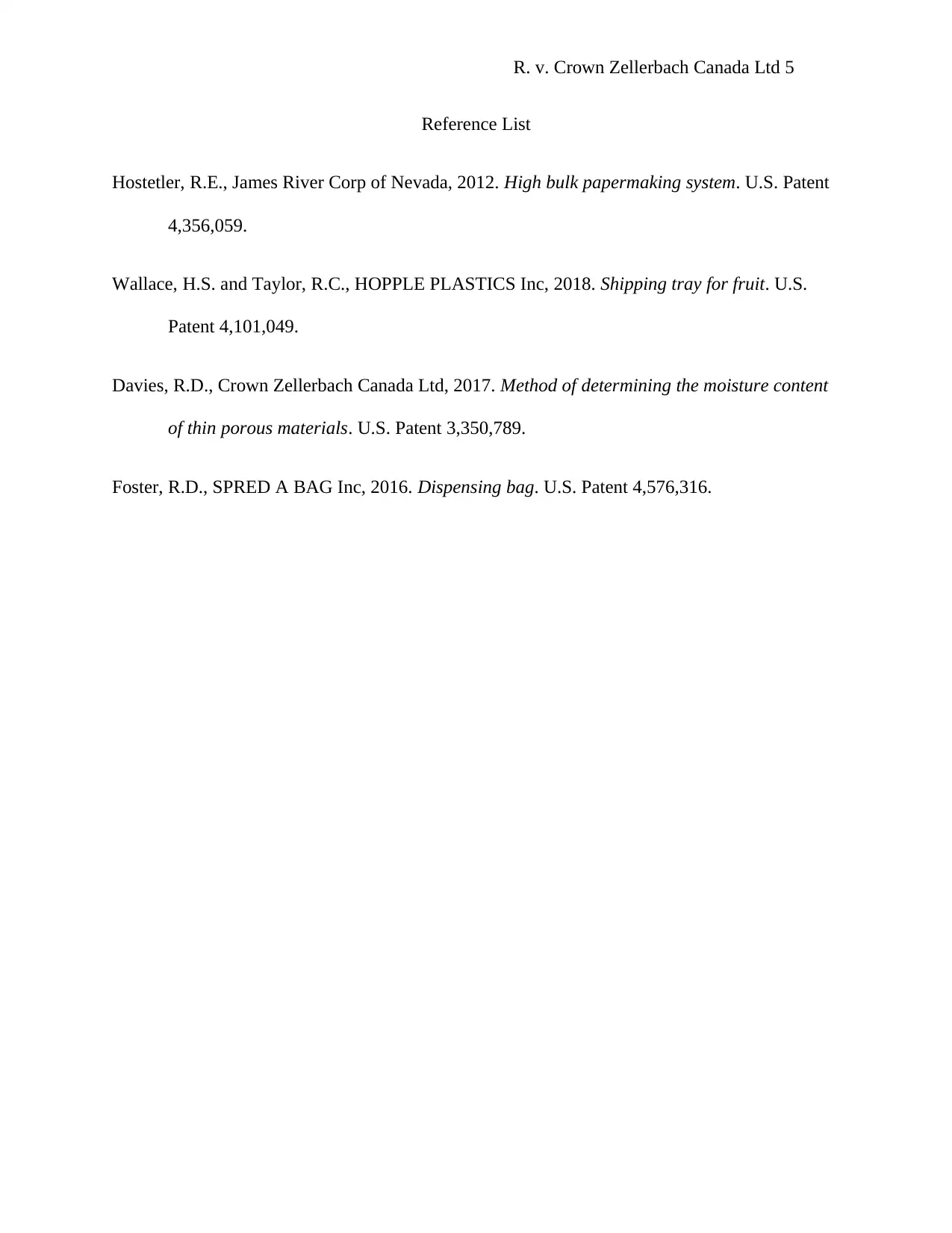

![[object Object]](/_next/static/media/star-bottom.7253800d.svg)